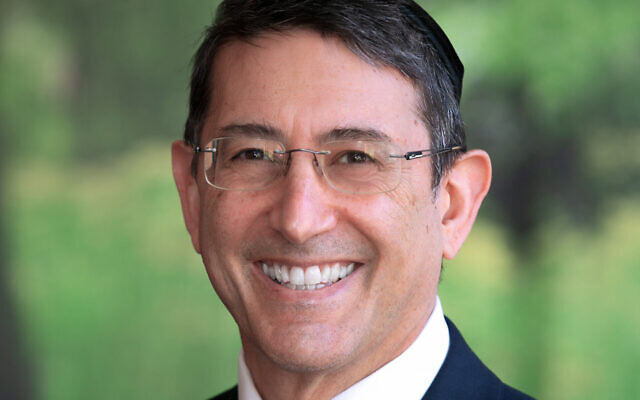Seeking Repentance During the High Holidays
As Jews worldwide enter the High Holiday season, Rabbi David Silverman, dean of the Atlanta Scholars Kollel, explains the significance of repentance during this time.
As Jews worldwide enter the High Holiday season, Rabbi David Silverman, dean of the Atlanta Scholars Kollel, explains the significance of repentance during this time. During this Q & A session, he explains the history of the concept, how to appropriately seek forgiveness from others and G-d and how Jews can best prepare themselves to enter a new year.
Rabbi, thank you for speaking with me. First, what is the meaning of repentance in Judaism?
Rabbi Silverman: In Judaism, repentance is t’shuvah, which literally means “to return.” There is a concept in Jewish thought that you can undo the damage you have done and rectify or repair a situation. You have an ability to take away the negative energy that has been put into the world by your misdeed, whether it was against a person, G-d or society.
Where did the concept of repentance or t’shuvah come from in Judaism?
Rabbi Silverman: The Talmud says that repentance preceded the existence of the world. G-d knew people would mess up and needed a way to fix their mistakes. Tikkun olam or the repair of the world, which is the ultimate goal for Jews, can only take place when we can repair our errors.
How do you repair situations with other people? Is there a process to ask them for forgiveness?
Rabbi Silverman: Asking for forgiveness is more than simply apologizing. A huge component is digging deep to understand how you hurt another person, committing to never doing it again and reassuring the person accordingly. Sincerity is key in asking for forgiveness. The actual confessional to the person you hurt must include an acknowledgement of what happened, a heartfelt apology and reassuring the person that you will not only never commit this act again, but that you are committed to fixing the situation and making it better than before. Judaism takes t’shuvah so seriously that even if a person has passed away, you must go to the grave of the person and ask for forgiveness.
And what if the other person refuses to accept your apology?
Rabbi Silverman: You must ask the person three separate times for forgiveness. If you have done this, you have done your part and, according to Halacha (Jewish law), you will be forgiven.
How do you ask for forgiveness from G-d?
Rabbi Silverman: Our prayers to G-d are just the final strokes of the process after stopping the sin, feeling and expressing sincere remorse and vowing not to do it again. After completing this process, we participate in the “viduy,” or confessional, during Yom Kippur. The confessional can be personal and does not necessarily have to be communal, though the formula laid out in the Machzor makes it easier to follow for many people.
How do you seek forgiveness for sins against society?
Rabbi Silverman: If a specific individual was not offended, you would have to confess and express remorse to G-d, who represents the community. Halachic authorities offered several ways to repair the deed, doing something to help a community that was hurt, providing general public improvement or offering charity to community organizations.
Are there sins so terrible that forgiveness cannot be obtained?
Rabbi Silverman: Our sages outline several types of sin that are unforgiveable. For example, a person who leads other Jews away from Judaism to practice polytheism or immoral acts cannot be forgiven. A person who does not take the atonement process seriously will also not be forgiven. For Pharaoh, the doors of repentance were shut because he refused to recognize G-d as a supreme authority and kept backing down from his word that he would let the people go.
Jewish law has deemed some acts so despicable that only one’s death can bring about atonement, and then only if the person seeks t’shuvah before his death. There is a Jewish custom that as people pass from this world, they say “viduy” and declare that their death should be an atonement for any sins they may have committed.
How did the process of t’shuvah go from the high priest going into the inner sanctum to sprinkle the blood of an animal offering to atone for Israel’s sins to how it is done today?
Rabbi Silverman: Once the temple was destroyed and this way of life was forced to end, prayers took the place of the temple offerings. There was more emphasis on services in local synagogues and communities. We looked to our prophets, leaders and rabbis for guidance on t’shuvah. The Great Assembly, 120 Jewish scholars who led the community after the time of the prophets, compiled this knowledge and created most of the prayers for Yom Kippur. The text was refined during the next several hundred years.
What is Tefillah Zaka? Is it recited during the Yom Kippur service?
Rabbi Silverman: Right before Kol Nidre, there is a beautiful prayer called Tefillah Zaka that was written in medieval times. The reader declares that they are forgiving anyone who did not have a chance to ask for forgiveness (unless they still have legal recourse to attain justice). Ideally, if everyone were to say this prayer, all Jews would forgive each other, and we would enter Yom Kippur on an amazingly high spiritual level.




comments